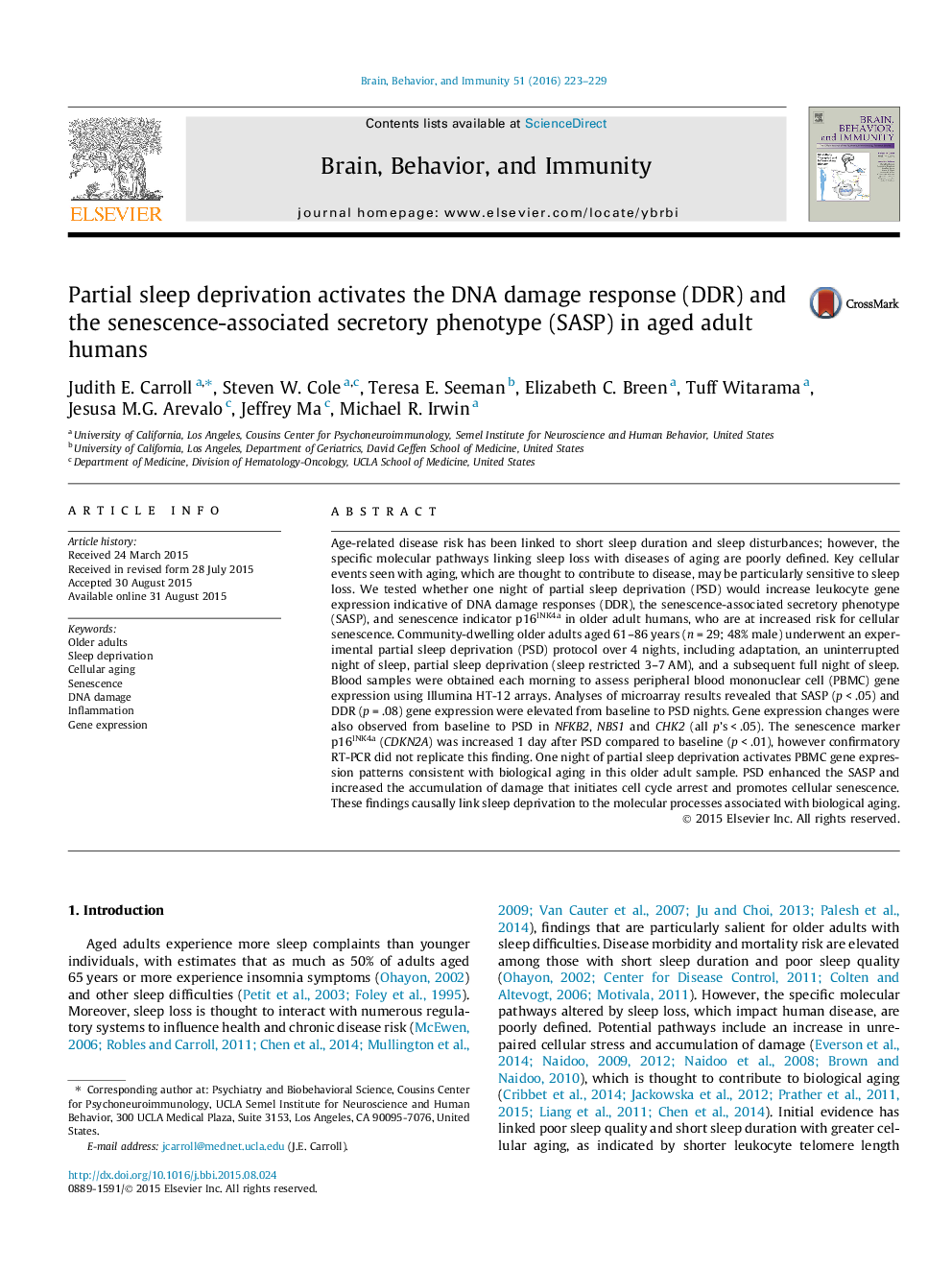| کد مقاله | کد نشریه | سال انتشار | مقاله انگلیسی | نسخه تمام متن |
|---|---|---|---|---|
| 922205 | 1473916 | 2016 | 7 صفحه PDF | دانلود رایگان |
• Sleep loss in older adults increased expression of DNA damage response genes.
• Sleep loss increased gene expression of the senescence associated secretory phenotype.
• Results link sleep loss to molecular processes involved in biological aging.
Age-related disease risk has been linked to short sleep duration and sleep disturbances; however, the specific molecular pathways linking sleep loss with diseases of aging are poorly defined. Key cellular events seen with aging, which are thought to contribute to disease, may be particularly sensitive to sleep loss. We tested whether one night of partial sleep deprivation (PSD) would increase leukocyte gene expression indicative of DNA damage responses (DDR), the senescence-associated secretory phenotype (SASP), and senescence indicator p16INK4a in older adult humans, who are at increased risk for cellular senescence. Community-dwelling older adults aged 61–86 years (n = 29; 48% male) underwent an experimental partial sleep deprivation (PSD) protocol over 4 nights, including adaptation, an uninterrupted night of sleep, partial sleep deprivation (sleep restricted 3–7 AM), and a subsequent full night of sleep. Blood samples were obtained each morning to assess peripheral blood mononuclear cell (PBMC) gene expression using Illumina HT-12 arrays. Analyses of microarray results revealed that SASP (p < .05) and DDR (p = .08) gene expression were elevated from baseline to PSD nights. Gene expression changes were also observed from baseline to PSD in NFKB2, NBS1 and CHK2 (all p’s < .05). The senescence marker p16INK4a (CDKN2A) was increased 1 day after PSD compared to baseline (p < .01), however confirmatory RT-PCR did not replicate this finding. One night of partial sleep deprivation activates PBMC gene expression patterns consistent with biological aging in this older adult sample. PSD enhanced the SASP and increased the accumulation of damage that initiates cell cycle arrest and promotes cellular senescence. These findings causally link sleep deprivation to the molecular processes associated with biological aging.
Journal: Brain, Behavior, and Immunity - Volume 51, January 2016, Pages 223–229
